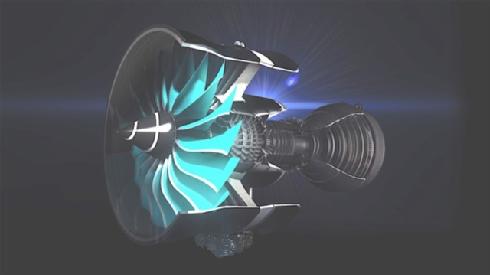Computer Science News
£14.7m industry partnership to boost engine research

Image ©Rolls Royce Plc
Scientists at the University of Warwick’s Department of Computer Science are to benefit from an initiative that seeks to build links between industry and researchers, as part of a project with Rolls-Royce to create a detailed simulation of a gas-turbine engine in operation.
The research aims to lead to the virtual certification of gas turbine engines, with the researchers also seeking to develop the next generation of engineering simulation and modelling techniques during their project.
Their challenge combines fundamental engineering and computational science research and will tackle a level of detail never before attempted in such a simulation.
The project, to be carried out over five years, involving the universities of Warwick, Bristol, Cambridge and Oxford and led by Edinburgh and is one of seven across the UK to benefit from a £42 million programme that aims to build links between the UK’s research base and industry partners.
This is one of two projects the University of Warwick has been granted money for by the Engineering and Physical Sciences Research Council (EPSRC) Prosperity Partnership, as WMG at the University of Warwick was also granted £7m for development of Rapid Alloy Prototyping. See: https://warwick.ac.uk/newsandevents/pressreleases/the_virtual_factory/
Commenting Professor Stephen Jarvis, Deputy Pro Vice-Chancellor for Research at the University of Warwick and the Warwick Principal Investigator on the Rolls-Royce Prosperity Partnership, said:
“The University of Warwick has been working with Rolls-Royce for the past ten years, investigating ways in which high performance computing can boost the productivity of aircraft engine design and engineering.
“We are delighted to be working with such a strong team of university and industry partners to deliver next generation engineering simulation and modelling capabilities."
Professor Philip Nelson, EPSRC’s Executive Chair said:
“Our first round of Prosperity Partnerships are proving a great success. They are bringing universities and industry together and applying the creative energies of both to engineering and scientific challenges.
“We are confident that these projects will deliver real benefits to all their partners and help the UK research, discover and innovate.”
The research project will begin in October 2018 and will be led by Professor Jarvis and Dr Mudalige from the Department of Computer Science.
